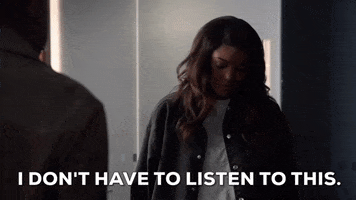When “I’m Just Being Honest” Isn’t Kind or Helpful
I'm a straight-shooter.
People love to say they “tell it like it is”—but sometimes what they really mean is “I say whatever I want, however I want, and I don’t want to be questioned about it.”
Honesty is a good thing. But “just being honest” is not a license to be harsh. If someone’s being blunt and unkind, then defending it with “I’m just telling the truth,” that’s not honesty—it’s deflection. And it often leaves the other person feeling hurt, small, or cornered.
This talking point is for the moments when you want to hold someone accountable for their tone without letting the conversation spiral.
Start Here
Pay attention to how it lands. Even if someone thinks they’re being helpful, honesty that leaves bruises isn’t actually helpful.
Kindness and clarity can coexist. You don’t have to water down what’s real. But you do need to care about how you say it.
You can set a boundary around delivery, not just content. It’s okay to name that the way something was said felt unnecessary or hurtful.
Talking Points – When You Need to Signal “That Hurt”
Sometimes people need a gentle redirect.
I know you’re trying to be honest, but the way that came across felt really sharp.
That may be true, but how you said it made it hard for me to hear anything else.
I’m open to hearing your perspective—but I need it said with more care.
I’m not rejecting your feedback. I’m asking you to say it in a way that isn’t painful.
I want to hear what you have to say. I don’t want to feel like I’m being judged.
I’m not asking you to lie. I’m asking you to lead with kindness.
Talking Points – If You’re the One Giving Honest Feedback
Before you share something that might be hard to hear, check in with yourself:
Am I trying to help—or am I trying to win?
This might be hard to hear, but I want to say it in a way that still feels respectful.
I’m not saying this to criticize—I’m saying it because I care.
I don’t want this to come across harshly. I’m trying to be honest and kind at the same time.
Can I share something I’ve noticed that might be helpful?
I want to say something honestly, but I’m working on how to say it well.
Talking Points – When They Keep Defending Their Tone
If they’re doubling down on being “real” at the expense of being respectful, here’s how to respond:
I’m not challenging the truth of what you said. I’m asking you to think about how it came across.
I hear what you’re saying. I don’t hear much care in how you’re saying it.
Honesty is important, but if it leaves people feeling attacked, it might not be landing the way you think.
If honesty means being unkind, that’s not the kind of honesty I want in my relationships.
You can be real without being rough.
Talking Points – When You Need to Set a Clear Boundary
This is for the moments when subtle isn’t working.
If this is how you choose to talk to me, I’m going to need to take a step back.
I won’t continue this conversation if it stays in this tone.
I care about you, but I’m not okay with being spoken to this way.
I need to end this conversation for now. I’m feeling disrespected.
I’m not available for conversations where I’m being cut down.
Prevention is Powerful
If you know someone tends to be “blunt,” you can set expectations early:
I’d love to get your thoughts—please be gentle with how you share them.
I’m open to honest feedback, but I ask that it’s done with kindness.
If something’s bothering you, I’d rather you tell me in a way I can actually hear.
Remember This:
Truth doesn’t need a sharp edge to be true.
You’re allowed to ask for both honesty and kindness in your conversations.









